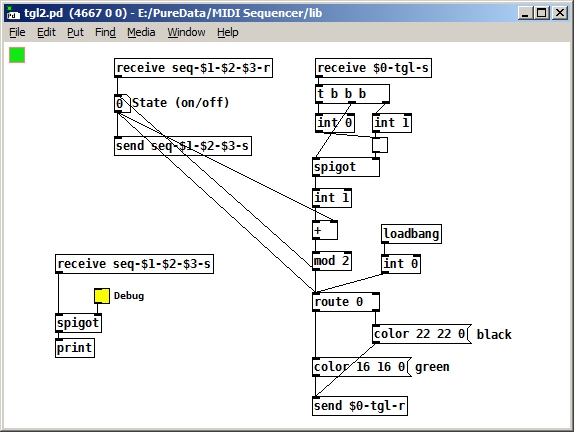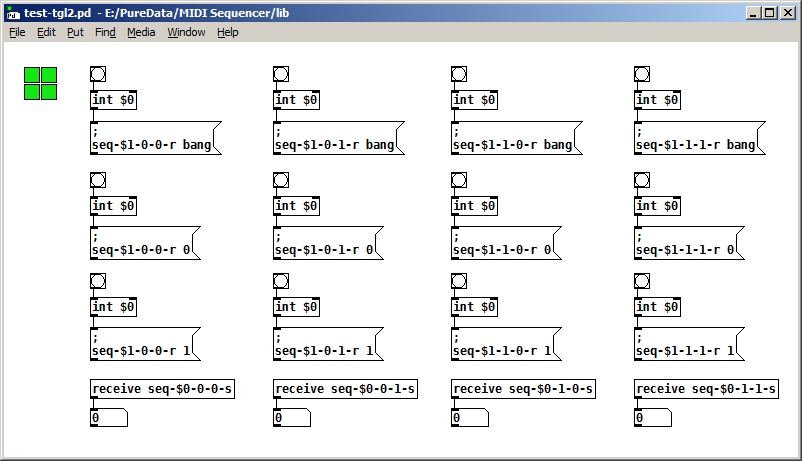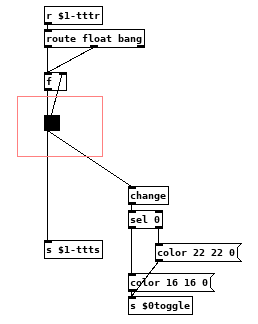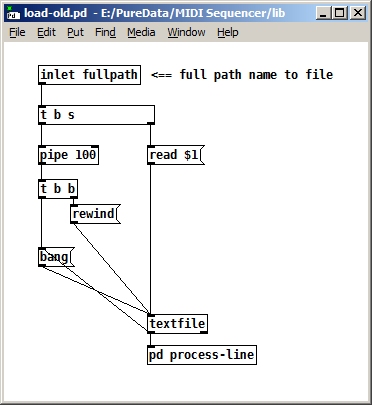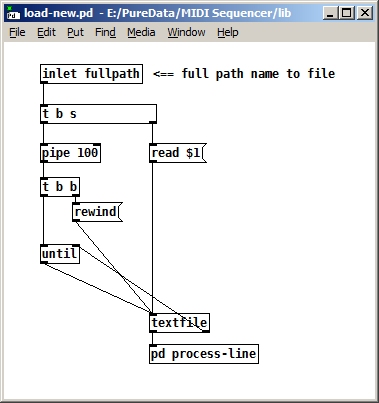Sorry if I've missed something, but I searched for "stack overflow" errors in the forum and found lots of posts, but none of them seem relevant.
I wanted to create an abstraction that acts like the built-in [toggle] object, except that I could send it a [bang( to output the value without changing the state of the toggle (like the other built-in objects such as [number], [symbol], etc.). I also wanted to change the colour of the toggle, rather than just displaying an 'X', to make it stand out visually. So I came up with this, which is just a wrapper of sorts around the actual [toggle], and the state is save in a [number] box so I can send it a bang message.
It seems to work if I have a small grid of toggles (see "test-tgl2".pd). But in a larger, more complex patch, I started getting "stack overflow" errors. (The patch that's getting the error is a bit too complicated to expect anyone to debug for me, so I haven't attached it.) When I click on "Find Last Error", it takes me to my abstraction ("tgl2.pd"), but I can't see anything in it that would cause a stack overflow. I think the problem may be higher up in the calling hierarchy (my abstraction is 4 or 5 levels down), but I'm not sure. Can anyone see anything wrong with my abstraction? It might not be the best design, but it should work, I think.
Thanks.
